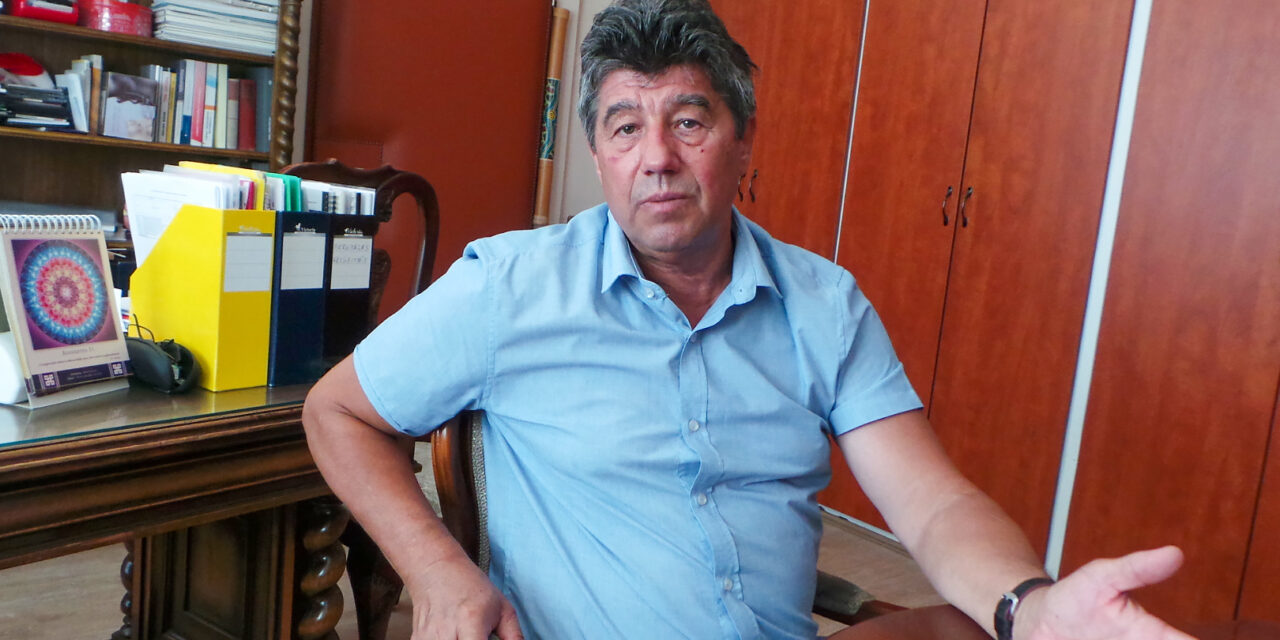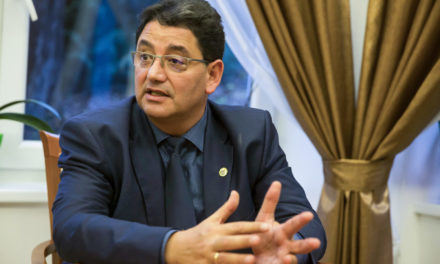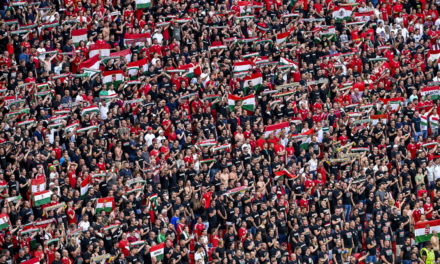It's not uncommon for an actor to be burned out by a role. For most of us, Károly Nemcsák is still Feri the printer from the Neighbors telenovela. This can be a pleasant state, but at the same time it is difficult to get out of a box.
This can happen with any role, if you appear on television, you don't have to stay on screen for 13 years. The important thing is that something lasting or exciting is born. Of course, it is not a problem if the characters are played by great actors such as János Kulka (Doctor Mágenheim), Erzsi Pásztor (Aunt Janka) or even Ferenc Zente, who played in period films (for example the Tenkes Kapitanya series), but for a long time the viewers referred to him as Uncle Taki. I became a Cutting Feri, but I never saw this as a disadvantage, but as an opportunity. Of course, in the beginning, the audience coming to the theater might also be curious about what this "Cutting Kid" is doing on stage, but they will slowly learn my civil name as well. To be honest, I have always experienced this situation as a success.
It is interesting that the Neighbors series, although we saw the last part in 1999, still has a large fanbase today.
Probably because we were so up-to-date in people's lives that almost everyone remembers that it was a daily series, while Neighbors only aired every two weeks. But for 13 years. We became family members in the viewers' homes. I think a big part of the success was the fact that Ádám Horváth, the father of Neighbors, worked with a professional team, and this applies not only to the production part, but also to the actors. Like it or not, this is a profession and the profession has certain requirements. If we can meet this, then we can create something, if not, then we are not talking about real actors, but about starlets with a life of a yew flower. Even among trained actors, there are those who cannot take advantage of the opportunity in certain situations or handle it badly.
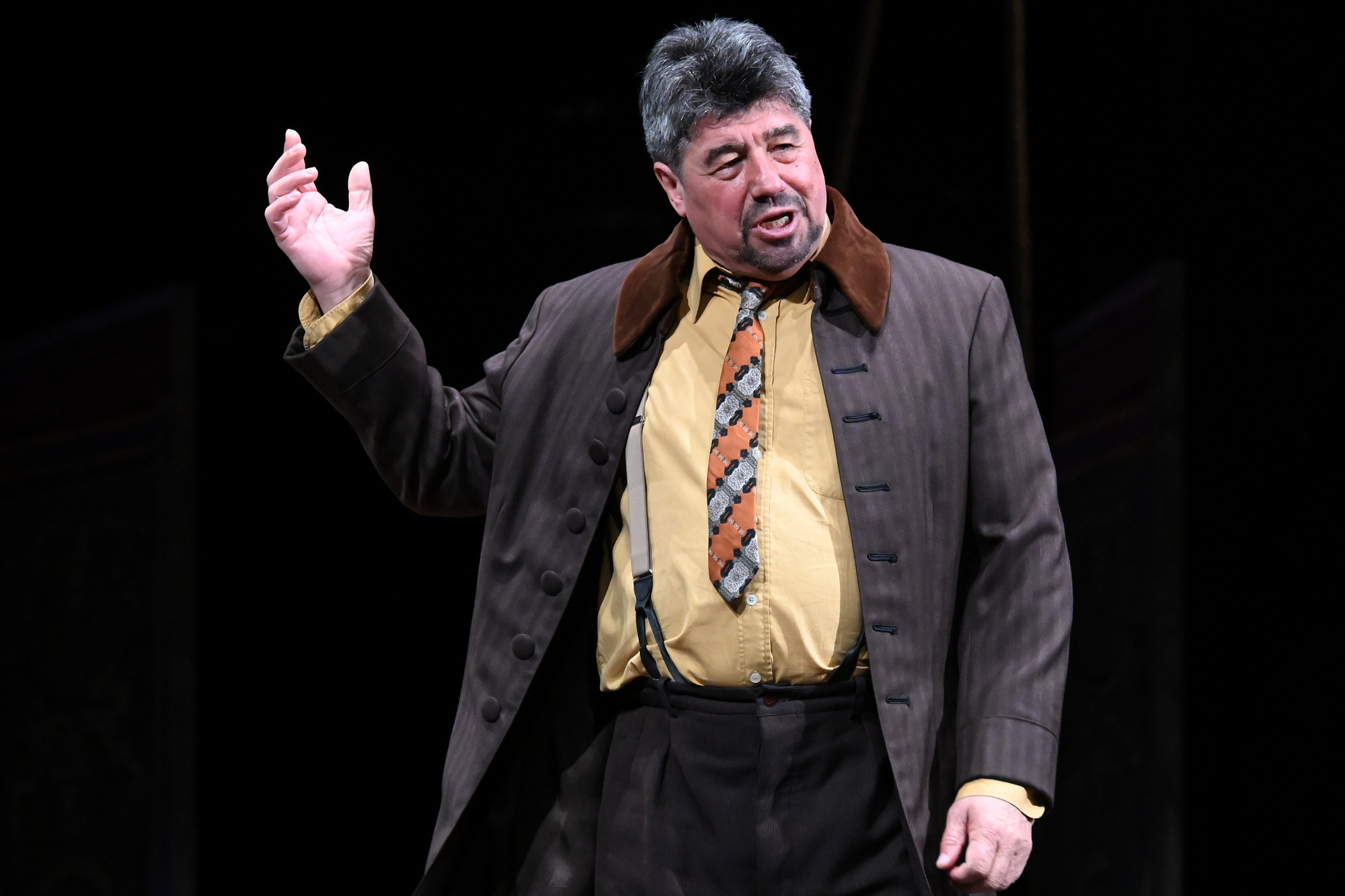
Károly Kazynski Nemcsák in the role of director at the photo rehearsal of György Spiró's play The Impostor at the József Attila Theater on April 7, 2022. The play, directed by Bertalan Bagó, will be presented on April 9. Photo: MTI/Zoltán Máthé
I know that the actor is not the same as his role, but if his character is close to the character he portrayed, his job is easier. How much is the Vágási Feri in Károly Nemcsák?
It was confusing that they really thought I was an orphan raised on Fóti út. Which is strange, because I grew up in a happy family, but it is likely that my character carried a character trait that absolutely contained this kind of vulnerability. To some extent, Ádám Horváth incorporated our character and everyday life into the series.
For example, I was already such a positive figure that I asked Ádám to fight or kick me or yell at me for no reason at least once, because it was already hard for me to bear it myself.
He has said in many interviews that he was a village boy, but he did not talk much about how his parents received him when he announced that he wanted to be an actor.
My father was a bricklayer, and my mother was a housewife, she ran the farm and raised us, because I have an older sister. My small village functioned like a small state, so everyone had their place and position in the community. But a lot of people from this closed community graduated from university, many from college, so despite the closedness, I can still talk about a very open community. When it turned out that I wanted to choose the theater career, there was no conflict. It's true, when I wasn't accepted to the Drama School for the second time, I felt, especially from my father, that he would like us to come to an agreement somehow, and that I choose not only acting, but also some "hands-on" profession. Acting was elusive for a family where art was not present on a daily basis. But I emphasize, there was no big conflict, so they accepted that it was important to me for some reason.
Let's take a big jump. Now, in addition to working as an actor in the József Attila theater, he is also its director. However, when he applied for the position, a bankruptcy trustee was needed rather than a theater director. In the end, I managed to straighten things out, but I don't understand how an artist who feels comfortable on stage dares to venture into a business that requires completely different qualities.
It is very important what examples a person meets in life, who he meets, who are the mentors, teachers, peers who are around him, how his life develops, when he notices, what starts to excite and occupy him beyond the immediate profession. I met a lot of great people, people who were creative people, so they weren't satisfied with just their daily tasks and assignments, but found or sought multiple challenges in life. It might seem like a small thing, but I was kind of open about these things. I have been the captain of the actor's national football team for twenty-nine years now, and I took over the leadership of the team at a time when we had to think about how to get back on our feet economically. We had to have HUF 1-2 million in the cash register every year to be able to operate comfortably. In addition to finding sponsors, it was also necessary to ensure that order was maintained among strong individuals. I have a lot to thank for those years, I found many great friends who helped me in many ways. I was also able to use the popularity I gained in Neighbors for When I got married, a few years later, my common-law wife also entered the profession, she became one of the founders of the Turay Ida Theater. Well, when we took a performance to the countryside, I practically became the company's PR manager. So many things led to the time I applied for the position of director of the József Attila theater.
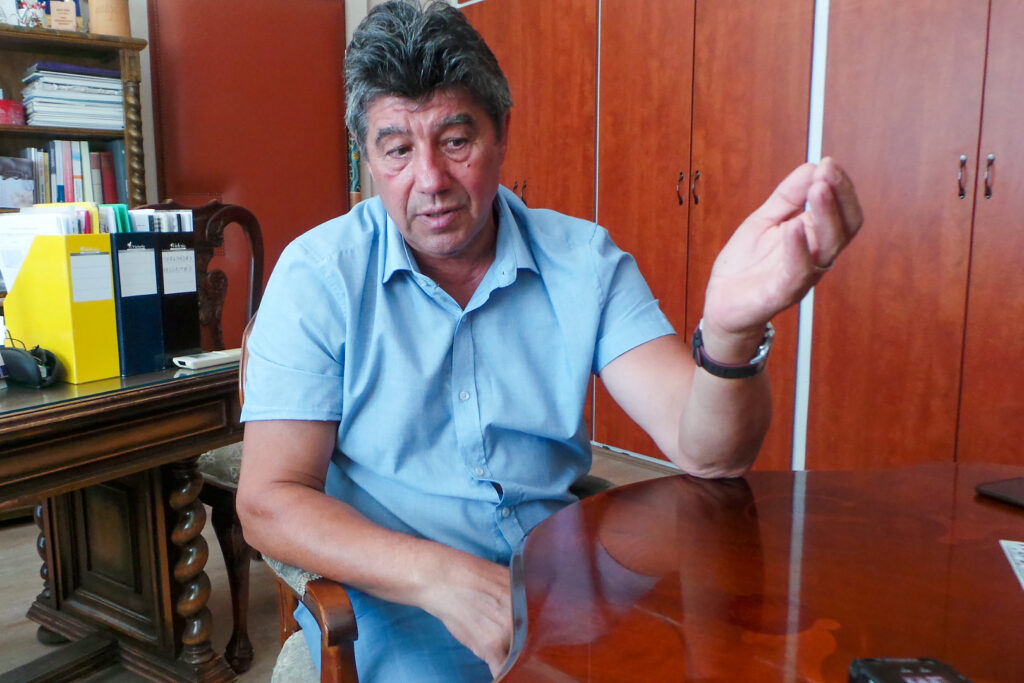
Photo: György Tóth Jr
It cannot be said that his appointment was welcomed by the left-liberal part of the theater world. The József Attila theater was usually handled with a wave of the hand anyway, because it is "just" a rural theater in Budapest.
In addition to the fact that many rural theaters can be envied by many in the capital, when I was appointed, I thought about what style the theater had followed until then. József Attila has always followed a kind of folk theater line, with a very colorful repertoire. Our predecessors were, and still are, defining personalities of Hungarian theater life.
I didn't think that everything should be radically changed. If a person can carry on the values he has, he is on the right track.
We can play musical comedy in the same way as dramatic works, and that's fine. And if a team works well together, then there is no right and left, there is only profession. And if this goes to any side, then I have to correct it. We don't need to educate the hundred and twenty thousand viewers who come to the theater in one season, push something very strongly in a bigoted way, and I shouldn't impose my values on others.
My values are human and not political. Of course, personal and artistic values meet, because family, community, and faith are important to us.
These aspects may appear in the composition of the repertoire, but that's not a problem, in fact! Because we have to convey values and remind about forgotten values. In the past, the given word had power, today we are also in trouble with a contract. In the past, a handshake had power, today it is not even formality. I believe we must respond to this as well. It is not easy to do theater these days, but in our theater there is a community that tries to convey value.
It is very difficult for an actor - especially if he is also a director - to be a father at the same time. How did you manage? Because it is clear from several statements that he adores his sons.
My sons are now grown men, twenty-eight and twenty-six years old. I have been a director for 12 years, which means that we were and were with the children a lot when they were younger. I think that there is no hiatus in this, although it always comes to mind that of course it would have been nice to spend more time with them, but we were not a family of artists to such an extent that we could not have spent our childhood time well and together. They went to the theater a lot, but we didn't want to force the profession on them. None of them became actors. Our younger son, soldier Máté, serves in the Crown Guard. The older one, Balázs, didn't choose the boards representing the world either, he is an economist, although he is a little closer to the stage, because he is the economic manager of the Turay Ida Theater.
Although it was not discussed in this way, I feel that faith shines through in our entire conversation.
We were brought up in the Catholic faith, attended religious studies, and were churchgoers. It is likely that the whole environment in which I grew up was much closer to God than people living in a big city. Then, somehow, going to church was a bit out of my life, because I soon got away from home and the irregular lifestyle of acting kind of distanced me from that. It is true, this is not legal, there are good examples in front of us, it is enough if I only think of our friend Károly Eperjes. He always finds the place and time to deepen his faith. As for me, even if I didn't go to church regularly, I was able to keep my faith. The Good Lord was always somewhere in the development of my whole life. I claim that my roots are very strong and these roots bring me back to where I started and the environment in which I lived. My childhood and my relationship with the church strengthened me spiritually. I say again, I have a strong inner faith.
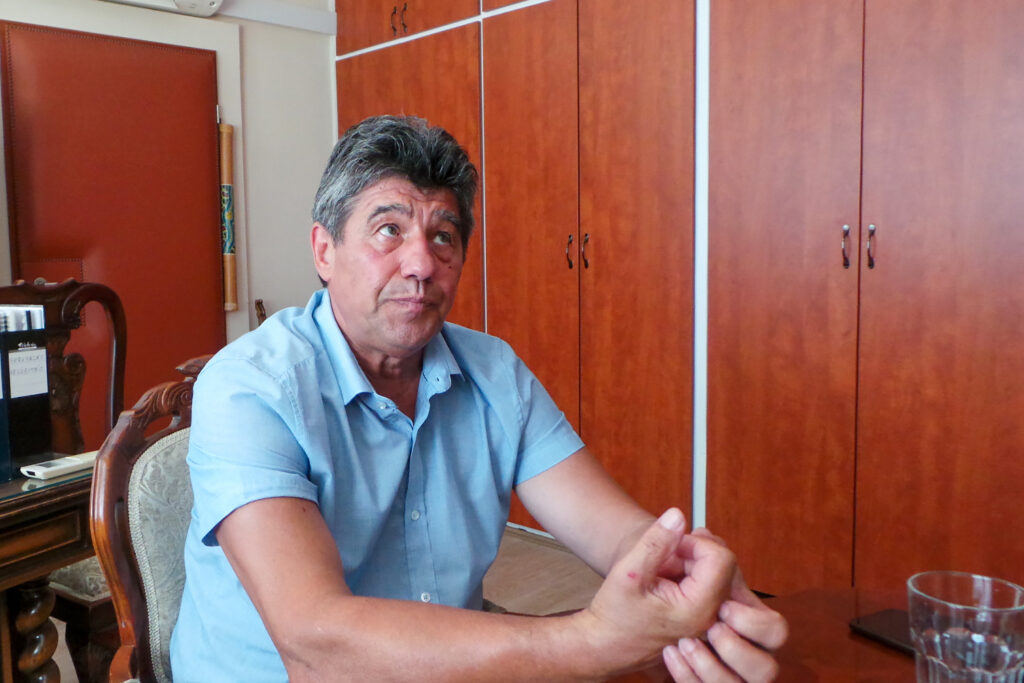
Photo: György Tóth Jr
Perhaps the result of this belief is that he thought a church should be built in his native village.
For a very long time I had the urge to belong to the village and communities where I lived and grew up. When I was tired and in a bad mood, I went home and in a day or two just by being at home, everything was put in order, I was filled with energy. Then, in 2016, I told my goddaughter, who lives in her parents' house with her family, my fear-guarded thought: let's build a church. Perhaps it was also a little bit in me that I could lead the years of my neglected faith to the Good Lord. It was a real community miracle, because the church was already built by 2018, but due to covid, it could only be consecrated by the Archbishop of Eger a year later. Now there is a place in my beloved little village where it is good to feel the closeness of God. And the Creator gifted me with the acquaintance of such wonderful people who subsequently became a part of my life. For example, the church designers Szabolcs Eperjesi and Attila Kiss, or my friend Attila Petró, who is a master stonemason and gave substantial financial support to the construction of the church. He even gifted our village with a 5-meter high marble statue of Mary. But I can also mention our mayor, László Kékedi, who is a master of folk art and the head of the folk art department of the Hungarian Academy of Arts, so I met wonderful people.
Active, I call it "doers" with people who kneaded a snowball, threw it, and that ball collected the snow to eventually build a snowman. I feel that I have also received this gift, because I was also able to be such a "doing" person. Through them and with the help of God.
The future? As far as I know, he is not taking on another term as director.
As I have already said in several interviews, I would like to hand over the theater to the exchange in such a way that they take over a perfectly functioning institution. When my new assignment ends, I will be 69 years old, when I will have to pay more attention to myself. So my decision shouldn't really be a surprise. But I have to add that I don't like to leave anything out, that is, if we don't manage to complete the modernization of the theater by the end of the cycle, I will still apply again...
Author and featured image: György Tóth Jr

